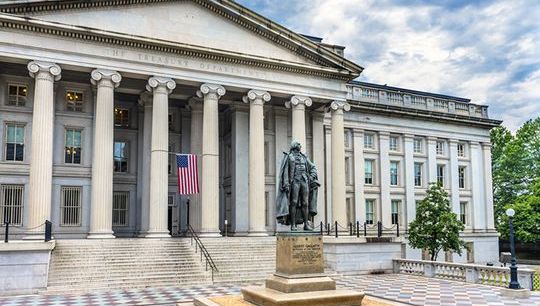Defining the role of philanthropy in the hedge fund sector
By Tony Cowell, Head of Alternative Investments at KPMG (Cayman Islands), and Co-Chair of the Editorial Committee, Cayman Alternative Investment Summit (CAIS)
Published: 27 January 2017
The job description for the typical hedge fund manager used to be pretty simple—generate alpha.
Investors derived value from hedge funds for their ability to provide diversification and outperformance. This is still true today, with many managers now expanding beyond the “alpha” umbrella to also talk about things like “risk management” and “capital protection.”
However, with the industry now representing more than $3 trillion in assets under management and key figures playing prominent roles in global markets and monetary policy, I think it’s time to add a new job requirement—“acting socially responsible.”
In recent years, publicly traded companies have had to grapple with simultaneous demands to generate returns for shareholders while also practicing corporate social responsibility. Now, there is increased pressure on the hedge fund industry to do the same—generating returns for investors while also embracing its role as a leading source of philanthropic capital.
Of course, many investors are already doing just that. A significant number of veteran hedge fund managers have established their own foundations, launched conferences, or supported charitable causes. For example, Paul Tudor Jones founded the Robin Hood Foundation in 1988 to help fight poverty in New York City. Since then the organization has pumped nearly $2 billion into local poverty-focused programs, and its board of directors now includes several luminaries of the hedge fund industry.
Hedge funds are also an important contributor to various large-scale initiatives, like the United Nation’s Sustainable Development Goals and climate agreements, which require the mobilization of a full spectrum of financial resources.
The importance of these efforts can’t be overstated, but there’s more work still to be done.
At the Cayman Alternative Investment Summit (CAIS), an annual conference that gathers thought leaders from across the alternative investment industry, one of the most popular panels is on philanthropy. Chaired every year by Lord Michael Hastings, Global Head of Corporate Citizenship at KPMG, the panel aims to inspire delegates to be responsible individuals and to support philanthropic efforts both locally and internationally.
The recurring theme shared at these panels, which in past years has featured leading philanthropic figures such as Sir Richard Branson and Kerry Kennedy, is that more needs to be done to bridge the gap between the financial world and the charitable world. The solutions vary widely—impact investing, ESG investing, mission investing, charitable donations, and more. But the fact remains that non-profits and other humanitarian organizations are starved for capital, while hedge fund managers represent one of the most prominent potential sources of capital. The two need to find a way to come together.
Here I outline three suggestions to help push the industry, and the world along with it, forward.
1. Embrace a hands-on approach.
There’s a reasonable temptation for a hedge fund manager to sign a six- or seven-figure check once a year and be done with it. After all, they have billion-dollar portfolios to manage, and likely don’t have the time to properly vet which charitable causes are the most in need and where their capital will have the most impact.
Fund managers are wired to think through every investment decision, looking for any potential advantage that might signal which direction a security might move. However, the philanthropic world just doesn’t work that way. There’s no unified global database for charitable causes, with standardized details on the potential return on investment for each donation. Although some managers have privately built sophisticated systems and dashboards that can measure impact, these systems still can’t speak to each other or leverage the power of big data.
That’s why it’s important for hedge fund managers to take their philanthropic activity more seriously, and get involved in the decision-making process of which causes to support and how. Hedge funds can also play a major role in pushing charities and other non-profit organizations to focus more on the impact of each dollar, an area where financial and investment expertise can be particularly helpful. It may be worth a regular phone call or in-person meeting to make sure all parties are aligned on the mission and how best to execute and allocate capital. For an even more hands-on approach, hedge fund managers should consider sitting on the boards of the charities they want to be involved with.
Hedge fund managers are traditionally advocates of active management. They should embrace this philosophy in all their endeavors, especially charitable ones.
2. Partner with philanthropic organizations.
Still, no matter how much time an investor spends vetting potential philanthropic opportunities, they’re unlikely to have as good of an understanding about a particular cause as the individuals who work in the non-profit space every day. That’s why many managers are now turning to strategic partnerships—with other investors, public and private foundations, universities, financial institutions and business leaders—to maximize the impact of their philanthropic activity.
For example, a consortium of high-profile investors, along with long-time charitable advocates like Bill Gates and Jeff Bezos, recently announced a $1 billion venture fund that will invest in clean energy technology. Other firms are showing their commitment to social responsibility by joining trade associations or signing pledges dedicated to responsible investing, such as the United Nations’ Principles for Responsible Investment, which requires all signees to adopt six voluntary principles, including incorporating ESG into their investment analysis and decision-making.
Research has shown that these types of partnerships greatly expand the reach of things like impact investing and philanthropic capital. Much like how an institutional investor makes a big upfront investment in a newly launched fund as a sign of confidence, hedge fund managers can use their wealth to “seed” philanthropic initiatives and help convince other parties to come on board. Another advantage of these partnerships is that they bring together people from diverse backgrounds and areas of expertise, which means the charitable initiative is more likely to reach a wider audience and thus be more successful.
3. Share success stories.
Hedge fund managers, still to this day, have a reputation for wanting to stay in the shadows. There’s also a perception that if they talk about their philanthropic activities, they won’t be taken seriously because the general public may just view it as an example of them trying to “save face.”
While this is an understandable concern, the reputation of the hedge fund industry won’t improve unless its leaders are more forthcoming. Investors shouldn’t have to hide their charitable efforts—they should shout them to the world. Hedge fund managers, as stewards of capital, are some of the brightest and most well-respected minds in the world. They should take the lead in raising awareness for a particular cause, and encourage others to contribute in the process.
Philanthropy isn’t like the rest of the investment world where there’s always the threat of a competitor jumping on an idea and reducing the return potential. In fact, it’s just the opposite. Philanthropy is most effective when it’s an all-in effort, with contributions coming from all over rather than just one source. There’s no competition for who can donate the most money or make the biggest difference—it has to be a collaborative effort. It’s time the hedge fund industry as a whole embraces its potential as a champion of social causes, and helps lead the fight to build a socially responsible world.
Tony Cowell will give the opening address at CAIS 2017, scheduled for February 15-17 in the Cayman Islands. Lord Michael Hastings will moderate the last panel of the event, titled: “The Birth of Stars: An Explosion of Philanthropy.” For more information, please visit www.caymansummit.com. AIMA is proud to support CAIS 2017.









